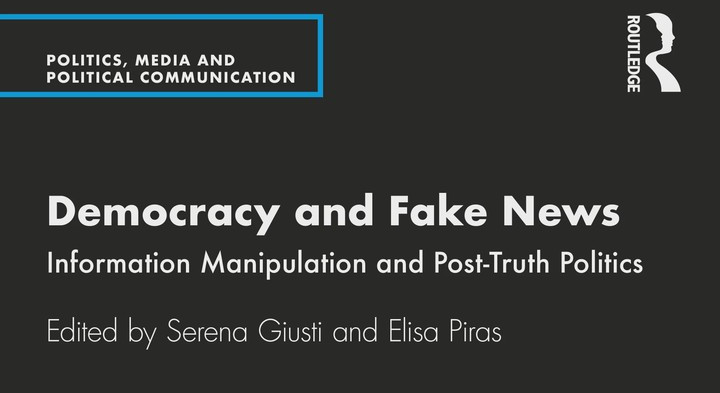Russia |
Responding to Alleged Russian Interference by Focusing on the Vulnerabilities That Make It Possible
Russian interference: This chapter by Giorgio Comai looks at the debates on Russian interference in the democratic processes of the West, highlighting the need for finding policy responses to the structural vulnerabilities exposed by alleged Russian interference

Rispondere-alla-presunta-interferenza-russa-concentrandosi-sulle-vulnerabilita-che-la-rendono-possibile
Democracy and Fake News – Information Manipulation and Post-Truth Politics
Based on a media analysis of mainstream Western media, this chapter defines ‘Russian meddling’ as a distinct phenomenon that emerged at the time of the U.S. presidential elections in November 2016.
It then proceeds by putting the preoccupation with Russian interference in the context of West-Russia relations and debates what is specifically Russian about Russian meddling. Finally, it outlines the work conducted by expert groups and dedicated committees to find policy responses to the vulnerabilities exposed by alleged Russian interference, focusing in particular on information operations conducted through social media and hacking-and-dumping operations.
As will be argued, there is a growing consensus on the structural nature of these vulnerabilities, and an appreciation of the fact that they must be approached without unduly focusing on the Russian component.
Type: Book section
Publication: Democracy and Fake News – Information Manipulation and Post-Truth Politics
This publication has been produced within the project ESVEI, supported in part by a grant from the Foundation Open Society Institute in cooperation with the OSIFE of the Open Society Foundations. The contents of this publication are the sole responsibility of Osservatorio Balcani e Caucaso Transeuropa.
Tag: ESVEI
Featured articles
- Take part in the survey
Responding to Alleged Russian Interference by Focusing on the Vulnerabilities That Make It Possible
Russian interference: This chapter by Giorgio Comai looks at the debates on Russian interference in the democratic processes of the West, highlighting the need for finding policy responses to the structural vulnerabilities exposed by alleged Russian interference

Rispondere-alla-presunta-interferenza-russa-concentrandosi-sulle-vulnerabilita-che-la-rendono-possibile
Democracy and Fake News – Information Manipulation and Post-Truth Politics
Based on a media analysis of mainstream Western media, this chapter defines ‘Russian meddling’ as a distinct phenomenon that emerged at the time of the U.S. presidential elections in November 2016.
It then proceeds by putting the preoccupation with Russian interference in the context of West-Russia relations and debates what is specifically Russian about Russian meddling. Finally, it outlines the work conducted by expert groups and dedicated committees to find policy responses to the vulnerabilities exposed by alleged Russian interference, focusing in particular on information operations conducted through social media and hacking-and-dumping operations.
As will be argued, there is a growing consensus on the structural nature of these vulnerabilities, and an appreciation of the fact that they must be approached without unduly focusing on the Russian component.
Type: Book section
Publication: Democracy and Fake News – Information Manipulation and Post-Truth Politics
This publication has been produced within the project ESVEI, supported in part by a grant from the Foundation Open Society Institute in cooperation with the OSIFE of the Open Society Foundations. The contents of this publication are the sole responsibility of Osservatorio Balcani e Caucaso Transeuropa.
Tag: ESVEI










